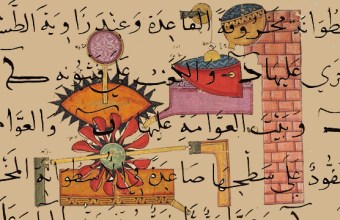Under Rating the Muslim Achievement

July 4, 2017
Underrating the Islamic Achievement
Published: 2002
 Unfortunately, the West has persistently endeavored to underrate the achievements of Islam and Muslims.
Unfortunately, the West has persistently endeavored to underrate the achievements of Islam and Muslims.
According to Dr. K. Ajram in his book, “The Miracle of Islamic Science,” few, if any, of the original contribution of the Arabs are mentioned in the books of history and encyclopedias.
In his book, “History of the Intellectual Development of Europe,” John William Draper stated, “I have to deplore the systematic manner in which the literature of Europe has contrived to put out of sight our scientific obligations to the Mohammadans (misnomer for Muslims).”
Surely they cannot be much longer hidden. Injustice founded on religious rancor and national conceit cannot be perpetuated forever.
What should the modern astronomer say, when, remembering the contemporary barbarism of Europe, he finds the Arab Abul Hassan speaking of tubes, to the extremities of which ocular and object diopters, perhaps sights, were attached, as used at Meragha?
What when he reads of the attempts of Abdur Rahman Sufi at improving the photometry of stars?
Are the astronomical tables of Ibn Junis (A.D. 1008) called the Hakemite tables or the Ilkanic tables of Nasir-ud-din Toosi, constructed at the great observatory just mentioned, Meragha near Tauris (1259 A.D.), or the measurement of time by pendulum oscillations, and the method of correcting astronomical tables by systematic observations are such things worthless indications of the mental state?
The Arab has left his intellectual impress on Europe, as before long Christendom will have to confess — he has indelibly written it on the heavens, as anyone may see who reads the names of the stars on a common celestial globe.
 It is deplorable to underrate the discoveries of the early Muslims, but it is far worse to ignore the mere existence of science as a whole to the Muslims. Here is what Robert Briffault in his book, “The Making of Humanity” states:
It is deplorable to underrate the discoveries of the early Muslims, but it is far worse to ignore the mere existence of science as a whole to the Muslims. Here is what Robert Briffault in his book, “The Making of Humanity” states:
Our science’s debt to that of the Arabs does not consist in startling discoveries or revolutionary theories; science owes a great deal more to Arab culture, it owes its existence. The Astronomy and Mathematics of the Greeks were a foreign importation never thoroughly acclimatized in Greek culture. The Greeks systematized, generalized, and theorized. Still, the patient ways of investigation, the accumulation of positive knowledge, the minute method of science, detailed and prolonged observation, and experimental inquiry were alien to the Greek temperament.
Only in Hellenistic Alexandria was any approach to scientific work conducted in the ancient classical world. We call science arose in Europe as a result of a new spirit of inquiry, new methods of experiment, observation, measurement, and the development of mathematics, in a form unknown to the Greeks. That spirit and those methods were introduced into the European world by the Arabs.
It is highly probable that but for the Arabs, modern European civilization would never have arisen at all; it is certain that but for them, it would not have assumed that character which has enabled it to transcend all previous phases of evolution.
Recommended Posts

Women’s Rights to Own Property
January 20, 2018

Navigation
January 20, 2018

Algebra
July 4, 2017
Comments
Leave a Reply Cancel reply
This site uses Akismet to reduce spam. Learn how your comment data is processed.


Thanks, great article.
Hope it helped. Sorry for the late reply.